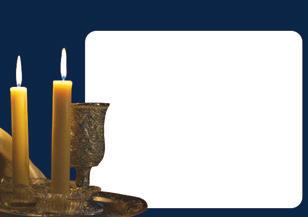




























Education
NOV. 11 | 8:00 PM
Applied Behavior Analysis (ABA) Education & Special Ed
Business
NOV. 2 | 8:00 PM
Business Administration MBA
Human Services
NOV. 11 | 8:00 PM
Nutrition Social Work Speech (SLP) Occupational Therapy Psychology
Human Services
NOV. 2 | 8:00 PM
Nutrition Occupational Therapy Social Work
Business & Law
NOV. 12 | 8:00 PM Accounting Business Administration Data Science Paralegal
Education
NOV. 9 | 8:00 PM
Applied Behavior Analysis (ABA) Education & Special Ed
Health Sciences
NOV. 16 | 8:00 PM Pre-Med Health Science (Nursing)
Speech
DEC. 7 | 8:00 PM
Speech-Language Patholog y
































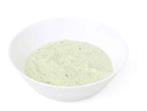




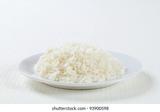








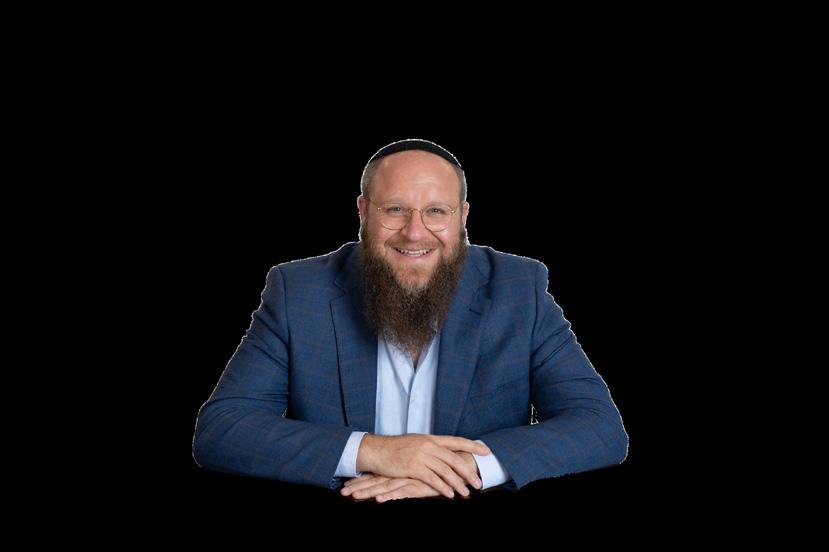




Whether you’re considering undergraduate or postgraduate studies, this is your opportunity to discover the programs, connect with admissions officers, and get all the answers you need to take the next step in your academic journey.
Boca Raton
Sunday, November 2
5pm-8pm
Miami Beach
Monday, November 3 5pm – 8pm
In collaboration with Katz Yeshiva High School (Boca Raton) and Hebrew Academy (Miami Beach). Location details will be sent after registration
• Meet admissions officers from Israel’s top universities and colleges for one-on-one conversations.
• Institutions participating include: Tel Aviv University, Reichman University, Technion, Bar-Ilan University, Ben-Gurion University, Jerusalem College of Technology (JCT), Holon Institution of Technology (HIT), TCS Telecom along with representatives from the Ministry of Aliyah and Integration.
• Explore academic programs in all fields - undergraduate, postgraduate, and more.
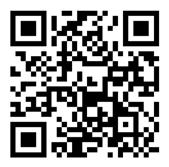







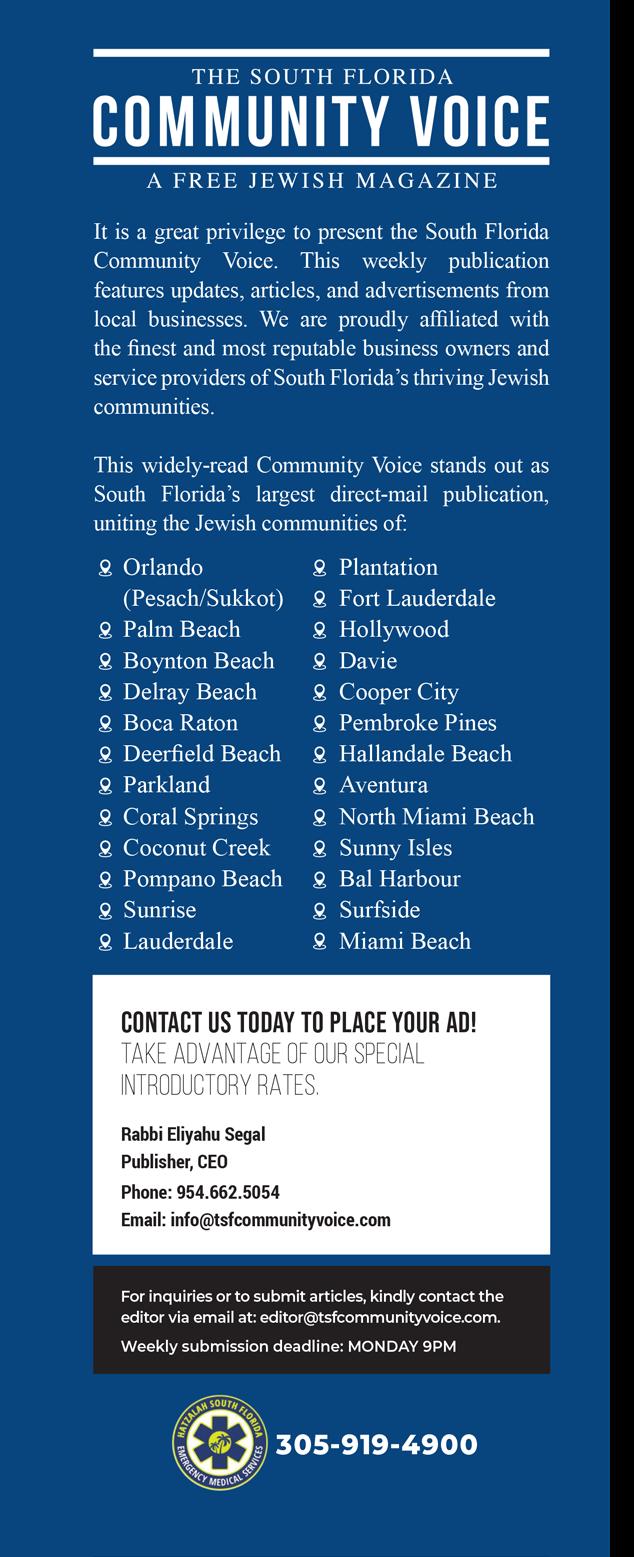
+1 (954) 662-5054 |
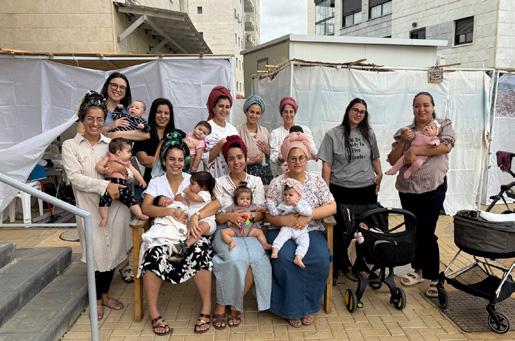
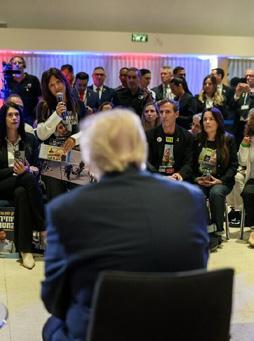

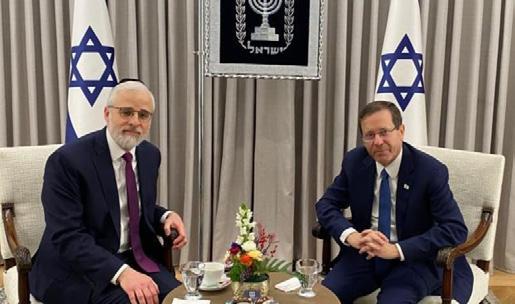
© The South Florida Community Voice Magazine. All rights reserved. Reproduction in printed or digital form in whole or in part in any form without prior written permission is prohibited. The publisher reserves all right to edit all articles for clarity, space and editorial sensitivities. Submissions cannot be returned to sender. The South Florida Weekly Magazine is not responsible for the cash flow of any advertised product or service that appears in these pages. The South Florida Community Voice Magazine assumes no responsibility for the content of articles or advertisements in this publication, nor for the content of books that are referred to or excerpted herein.

By Sivan Rahav Meir
It’s Not Only the Hostages — It’s Us Too
Several days have gone by since the return of the last living hostages from Gaza, and the relief and elation are still fresh in our minds and hearts. How many stories have you heard about them? And how many stories did we miss, stories that didn’t make it onto this list?
• Eitan Horn of Kibbutz Nir Oz, who returned from captivity, shared that it was specifically in Gaza that he fasted on Yom Kippur. He is 37 years old, and there — for the first time in his life — he observed the holy day properly.
• Segev Kalfon recounted that when he saw all the Hamas men on stage in Gaza, all he wanted was to climb onto the stage and shout: “Shema Yisrael, Hashem Elokeinu, Hashem Echad.” Now he is home, able to say Shema Yisrael freely, with everyone around him.
• Bar Kuperstein said that the song that strengthened him most, and that he sang to himself over and over again, were: “Ve’afilu behastara shebetoch hahastara, bevadai gam sham nimtza Hashem Yitbarach,” Even in the darkest places, when you don’t feel God, when it seems He is hiding, He is still there, present with you. Rebbe Nachman of Breslov wrote those words 200 years ago. They took on new meaning in the Hamas tunnels.
• Rom Braslavsky shared that the terrorists offered to convert him to Islam, promising him more food and better conditions if he agreed. But he kept telling them,
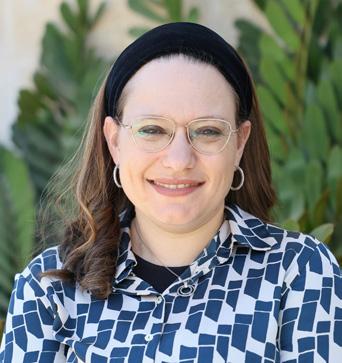
over and over: “I am a strong Jew!” Now, facing the cameras, he said: “I want people to understand that they are Jews, that they should do more mitzvot. Hamas did this to me only because I am a Jew. A Jew must know that he comes from greatness, that he’s not like everyone else.”
• Eliya Cohen, who returned from captivity several months ago, told how much he missed his tefillin. While held hostage by Hamas, he invented something both creative and moving: “Every morning I would go to one side of the room and imagine putting on my tefillin. I would go through the whole process, step by step, in my imagination. Sometimes, I could actually feel the tefillin on me.”
• Omer Shem Tov said this week how much he misses the connection he felt with God while he was in captivity, the closeness, the sense that he was speaking and that God was with him, listening. He described trying to rediscover that elevated feeling since his return.
All of these remarkable stories are, of course, about them — but in truth, they are about us as well. They reveal the depth of the Jewish soul, the power of faith, and the holiness of Jewish identity.
The entire Jewish world has just begun reading the Torah again from Bereishit— back to the very beginning. We are all part of this story, and each of us can reflect, reach their own conclusions, and choose a small step forward.
Because it’s not only them. It’s us. They remind us who we really are.
In the first portion of the Torah, Bereishit, which we began last week, there is just one mitzvah: “Pru U’rvu, Be fruitful and multiply.” God creates the world, creates humanity, and asks us to continue filling it with life.
Rinat Shalomov sent me the following message:
“In our building on Yehoshua bin Nun Street in Sderot, there are nine floors, filled with a beautifully diverse mix of Am Yisrael. Since last Simchat Torah until this Simchat Torah —families in our building have been blessed with 17 new babies! We felt the need to share this abundance, this miracle, this choice of life, with all of Am Yisrael.
Just two years ago, during the month of Tishrei, murderous terrorists roamed beneath our building for hours. And two years later, Am Yisrael Chai — in the most literal sense!”

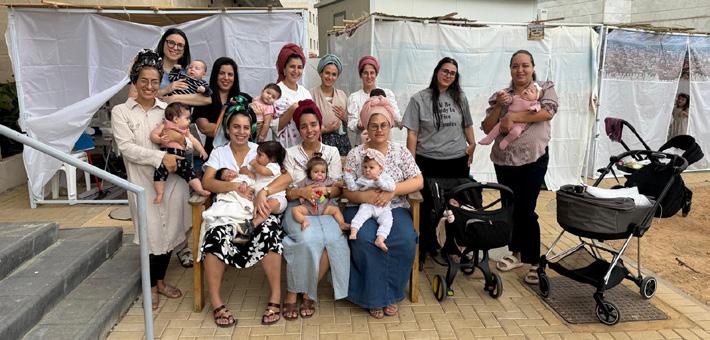
People often ask: What will Israel’s response be? The response is not only military or diplomatic. This is also a response: This year, in a single apartment building in Sderot the following children were born — Roni Zion, Sofia, Uri Yisrael, Lavi, Agam, Rani, Daniel, Yahel, Libi, Shaya, Michael, Emunah, Avia, Avigail, Neta Rachel, Keshet, and Ziv.
Mazel tov!
Rabbi Moshe Hauer - Words of Farewell
Rabbi Moshe Hauer passed away suddenly at age 60, from a heart attack in his home in Baltimore, Maryland.
Rabbi Hauer was not only one of the leaders of the OU, but also, a true leader and educator, a Torah scholar who touched millions of Jews around the world—many without even realizing it.
When I first met him several years ago at his home in Baltimore, , I was only beginning to understand American Judaism. On a personal level, I was struck by how someone so busy, who headed a huge organization and led a large community, could be so kind, calm, and warm-hearted.
Our last conversation was about
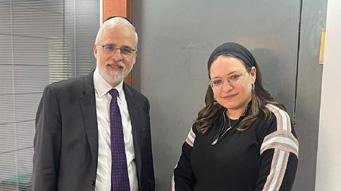
what we called the “October 8th Jews”—the global awakening that began after October 7th. He was full of hope and data: more children enrolling in Jewish schools, more people coming to shul, more Shabbat programs for students, more Jews speaking out publicly for Israel, visiting, even making aliyah.
“BRING THEM HOME NOW” is the slogan accompanying the campaign to bring back the hostages. I told Rabbi Hauer that after every encounter with world Jewry, I feel how that slogan describes them, too, how we need to bring them home, now.
They are not hostages in tunnels in Gaza, thank God—but many are held captive in other ways: lost on university campuses, confused by a progressive culture that often rejects them, caught in the hypocrisy of the UN and the global media.
Indeed, many are returning home—to themselves, to their
people, and their identity.
The OU is behind the kosher food in their supermarkets, their donations to vital projects in Israel, their advocacy and growing self-confidence in the face of antisemitism and anti-Israel sentiment. In his last email to me, Rabbi Hauer told me about youth delegations coming to Israel this summer, some for the very first time.
Condolences to his family, and to the countless students around the world who learned from him.
There are still millions of brothers and sisters whom Rabbi Moshe Hauer woke up every morning to care for—to bring them home.
The mission will continue.
Parashat Noach: We All Need an Ark
What do we do when floodwaters rise around us, threatening to overwhelm our world?
In this week’s Torah portion, God tells Noach: “Come into the ark.”
For centuries, our commentators have taught that each of us must find a personal “Noach’s ark.” This feels more true now than ever before.
“Come into the ark,” the parasha urges us. Enter a protected space that safeguards not only your body, but your soul.
The Hebrew word teivah means both ark and word. The holy Ba’al Shem Tov explains that “Come into the ark” is an invitation to seek refuge in words —of Torah and of prayer. Others teach that our ark can be found in Shabbat, in our families, in our communities, and in the circle of friends who sustain us.

Renowned Program Embarking on 40th Year of Transformative Program for Intellectually Curious High School Students from Diverse Jewish Backgrounds
New York, NY - October 2025. The Bronfman Fellowship is pleased to announce that applications are now being accepted for its historic 40th cohort. Every year, The Fellowship selects twenty-six outstanding North American teenagers from a wide range of Jewish backgrounds for a free, intellectually challenging year of programming, beginning with an immersive summer experience in the U.S. and Israel in between the Fellows’ junior and senior years of high school. For nearly 40 years, the program has educated and inspired exceptional young Jews to have a significant impact on the world as community builders, deep thinkers, moral voices, and cultural creators. The nonprofit Fellowship was founded by Edgar M. Bronfman, z”l, formerly CEO of the Seagram Company Ltd. and a visionary Jewish philanthropist.
Applications for the 2026 Fellowship are due December 2, 2025, and are available online at bronfman.org. High school students in the U.S. and Canada who identify as Jewish and who will be in 11th grade in the fall of 2025 are eligible to apply. The Bronfman Fellowship is a pluralistic program for Jews of all backgrounds; prior Jewish education is not required.
“The Fellowship is an opportunity for dynamic personal and
intellectual growth in a group of carefully chosen teens,” said Becky Voorwinde, CEO. “In a world that is increasingly polarized and divided, we seek to increase communication and understanding between young people from across the spectrum of Jewish life, including fostering bonds between Jews in North America and Israel. This program serves as a creative force that has inspired some of our best Jewish young adults to become leaders in their communities, and to develop their unique talents to change the world for the better.”
“My father, Edgar M. Bronfman, placed enormous faith in young people’s ability to see the world not just as it is, but as it ought to be,” said Adam R. Bronfman, President of The Samuel Bronfman Foundation. “He believed that young people energized by their Judaism were best equipped to both shape a Jewish ‘Renaissance’ and improve the world.”
For the past three decades, Bronfman Fellows have built a pluralistic community through a transformative, intellectual, and deeply personal journey in which they have the opportunity to see the world through a lens broader than their own. Fellows expand their perspectives as they build community with those representing different backgrounds, worldviews, and approaches to Jewish life and practice. Inspired by a stellar faculty of rabbis and educators, Fellows explore a wide range of Jewish texts, from classic religious works to contemporary poetry and
philosophy, using these sources to engage with stimulating existential questions and achieve a deeper understanding of themselves and one another. Bronfman educators create a welcoming space where Fellows can explore ideas freely, share diverse perspectives, and have challenging conversations built on openness and respect.
In addition to learning with faculty members, Fellows also have the unique opportunity to engage with speakers who are leading intellectuals, artists, and religious and cultural leaders. Past speakers have included journalist Matti Friedman; author and professor Dr. Mara Benjamin; musician and Yiddish scholar Anthony Russell; and Torah scholar Dr. Avivah Zornberg. Additionally, Fellows participate in the Fellowship’s arts tracks: workshops in areas including poetry, dance, drama, visual narrative, and music, taught by leading innovators in the field of Jewish art. Requiring no previous training, the workshops allow Fellows to immerse themselves in creating art, providing deeper context for understanding the lives and narratives of others, and empowering them to add their voices to the rich tapestry of Jewish culture and ideas.
The Fellowship year begins with extensive programming in the U.S. and a 10-day trip to Israel, where the Fellows interact with a group of exceptional Israeli peers who were chosen through a parallel selection process by the Israeli branch of the Fellowship, Amitei Bronfman.














Following their immersive summer, Fellows have monthly virtual meetings and two in-person seminars in the U.S., in which they explore major themes in Jewish life, and embark on projects to bridge the ideas and questions from their Bronfman summer with their daily lives and home communities.
The Bronfman Fellowship alumni community includes some of today’s leading Jewish voices. There are now over 1,500 Bronfman Fellowship alumni across North America and Israel. Among them are 9 Rhodes Scholars, 4 former Supreme Court clerks, and 20 Fulbright Scholars. Leaders of note among Fellowship alumni include Daniel Handler, a.k.a. Lemony Snicket, author of the best-selling A Series of Unfortunate Events children’s books; Jonathan Safran
Foer, author of Everything Is Illuminated; and Rabbi Angela Warnick Buchdahl, the first woman to be named Senior Rabbi at New York’s Central Synagogue and the first Asian-American person to be ordained as a rabbi and cantor. Others include Aryeh Nussbaum Cohen, renowned opera singer; Anne Dreazen, Principal Director for Middle East Policy at the Department of Defense; Dara Horn, author of People Love Dead Jews; Itamar Moses, Tony award-winner for The Band’s Visit; Raphael Rosen, co-founder and CEO of Carbon Lighthouse; and Rabbi David Wolkenfeld of the Ohev Sholom Congregation in Washington D.C. Alumni also include entrepreneurial Jewish leaders who have founded organizations like Keshet, Sefaria, and YidLife Crisis; and

serve in central leadership roles at major organizations like The Shalom Hartman Institute of North America, the Jewish Women’s Archive, Central Synagogue, Hillel International, and The Foundation for Jewish Camp, to name a few. Our Israeli alumni have also ascended to positions of influence in government, civil groups, the private sector, and cultural institutions. Amitei Bronfman alumni include attorneys at the State Justice Department, noted journalists, successful filmmakers (including a Tribeca Film Festival winner), political advisers to Members of Knesset, members of elite IDF units, and university lecturers.



by Moshe Phillips
The failure to decapitate the leadership of Hamas when the opportunity presented itself is one of modern Israel’s most devastating missed chances.
Hamas was founded in the late 1980s, and by 1992, during Yitzhak Rabin’s time as Israel’s prime minister, it had already become a major Islamic terrorist organization. It had shown a clear penchant for violence, including murder and kidnapping. Rabin initially took decisive steps to consign Hamas to the dustbin of history.
Then, tragically, he blinked. Under pressure from Peace Now, the United Nations, Europe and the White House, Rabin reversed course.
It is instructive—and deeply sobering—to recall exactly what happened.
On Dec. 13, 1992, Nissim Toledano, an Israeli border police officer, was kidnapped by Hamas in the central Israeli city of Lod—not in Gaza but in the heart of Israel. Two days later, his body was found. Hamas had sought to exchange Toledano for Sheikh Ahmed Yassin, the founder of Hamas, who at the time was serving a life sentence for ordering the murder of Palestinian collaborators.
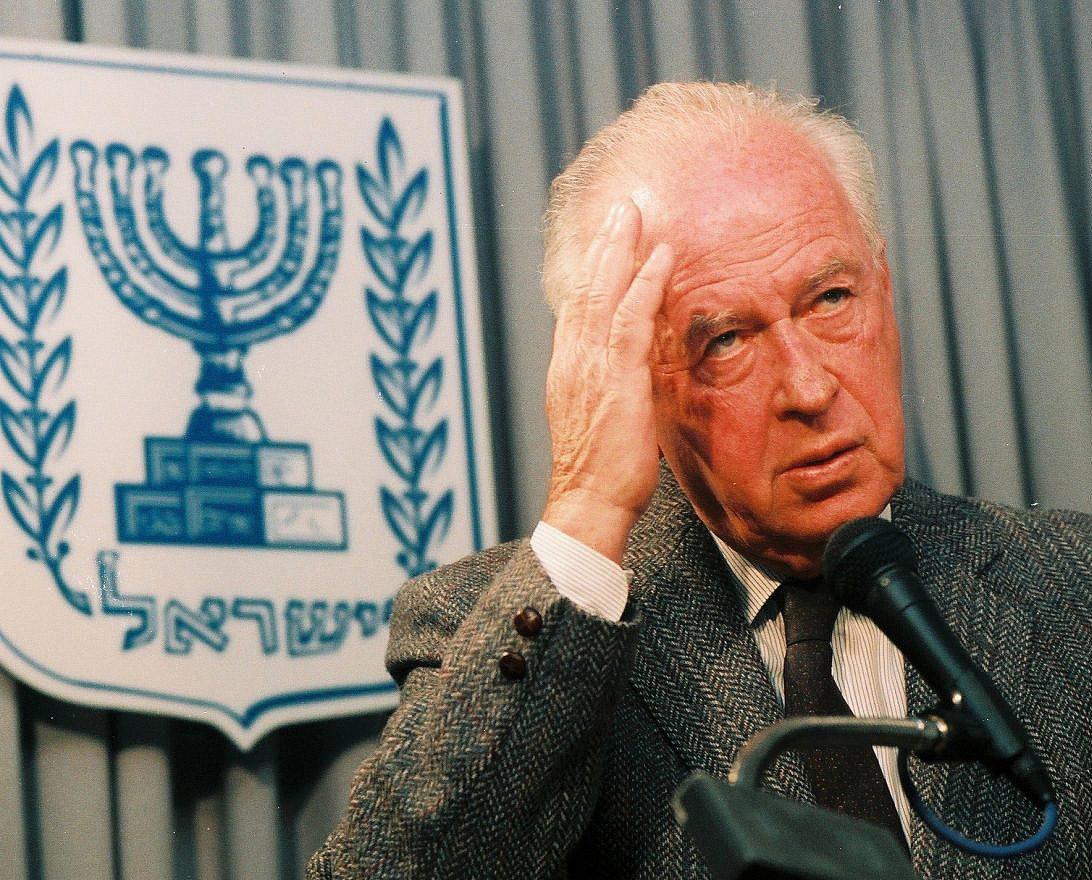
Yitzhak Rabin (March 1, 1922-Nov. 4, 1995) served as an Israeli politician and general, as was the fifth prime minister of Israel from 1974 until 1977, and again from 1992 until his assassination in 1995 by Yigal Amir, a right-wing activist who opposed the Oslo Accords. Photo by Flash90.Yitzhak Rabin (March 1, 1922-Nov. 4, 1995) served as an Israeli politician and general, as was the fifth prime minister of Israel from 1974 until 1977, and again from 1992 until his assassination in 1995 by Yigal Amir, a right-wing activist who opposed the Oslo Accords. Photo by Flash90.
The Israeli government responded swiftly and decisively. Rabin’s administration arrested more than 1,000 in relation to the incident, and deported more than 400 Hamas and Palestinian Islamic Jihad terrorists to Lebanon. These terrorists were sent to a Southern Lebanon no-man’s land between Israeli Defense Forces checkpoints and Lebanese army checkpoints. The expulsions should have been regarded as correct by world leaders. If Rabin’s critics inside Israel and outside of it had the foresight to see Hamas for exactly what it was, so much future carnage would not have happened. The trajectory of Israeli history would have been changed.
Moshe Phillips is national chairman of Americans For A Safe Israel (www.AFSI. org), a leading pro-Israel advocacy and education organization.





It took a concerted effort by the Israeli Defense Forces and political partners to show such success after two years of war against the Jewish state.
The amazing success Israel has had in the seven-front war that was launched against it on Oct. 7, 2023 was mainly due to the ingenuity of Israeli Prime Minister Benjamin Netanyahu, the Israel Defense Forces, the Mossad and, eventually, a successful partnership with U.S. President Donald Trump.
As we celebrate the return of the remaining living hostages who were taken alive on Oct. 7 and await the return of the remaining deceased hostages, it is the right time to consider all that has been accomplished.
After the massacre on Oct. 7, Netanyahu quickly decided on a joint goal of bringing home the hostages and ending the threat from Hamas, Hezbollah and Iran, which was the main funder and military supplier of its terror proxies, as well as the Houthis, who started firing rockets from Yemen. Netanyahu’s first critical decision was to evacuate residents from the north of Israel, rather than invade Lebanon in response to Hezbollah’s massive missile attacks on Oct. 8, as he did not want ground troops fighting in two places at once and needed to focus on Gaza.
Netanyahu also had to deal with the Biden administration, which said it would support Israel in its fight against Hamas in Gaza, though not Hezbollah in Lebanon. With the Biden administration’s help, after Israel sent ground troops into Gaza, Hamas released
By Fairly Weiss
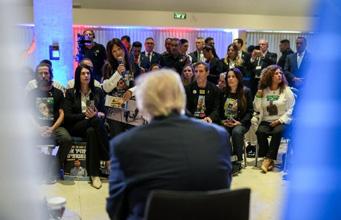
105 living hostages—from Nov. 24 to Dec. 1, 2023, this included 81 Israelis hostages, 23 Thai and one Filipino national. Israel released 240 Palestinian prisoners without blood on their hands, mostly minors. Israel did not withdraw from any areas in Gaza during the truce. Once Hamas stopped releasing the required 10 hostages a day, the war resumed.
As the war progressed, Netanyahu saw the need to stop the flow of arms to Hamas via tunnels from the Egyptian border to Rafah. Then-President Joe Biden opposed Israeli action there; U.S. Secretary of State Antony Blinken warned Israel that American weapons would be extremely restricted if its forces entered Rafah. Netanyahu proceeded anyway, destroying the Hamas smuggling network. It was in Rafah that Israel found and killed senior Hamas leader Yahya Sinwar, the mastermind of the Oct. 7 attacks.
Hamas increased its demands for the hostages as it saw that the Biden administration was no longer fully backing Israel militarily. Further, then-Senate Majority Leader Chuck Schumer went on the Senate floor on March 14, 2024,
likely with the support of the Biden administration, and called for Netanyahu to be replaced. That was echoed by journalists Bret Stephens of The New York Times and David Horovitz of The Times of Israel. Netanyahu resisted the call for new elections, but the result was that Hamas’s negotiating position was strengthened.
The next big moment was the Sept. 17-18 beeper and pager operation, when Israel detonated communication devices used by Hezbollah leaders to communicate with its operatives, resulting in thousands of injuries. Israel killed Hezbollah leader Hassan Nasrallah on Sept. 27.
On Oct. 1, Israel launched a ground offensive into Lebanon reaching the Litani River, which led to a ceasefire going into effect on Nov. 27. The ceasefire meant the end of Hezbollah missiles being fired on Israel and the ability of Israelis to return to their homes in the north after being evacuated for more than a year. Even though Hezbollah has attempted to violate the ceasefire, Israel has enforced it through repeated attacks; now, the Lebanese Armed Forces have a chance to take Lebanon back.
The next hostage deal closed in January of this year, resulting in the release of 33 living hostages, including the remaining living female hostages, over a period of several weeks. In exchange, Israel released mass murderers, as well as some 2,000 other Hamas prisoners. Israel also withdrew from significant amounts of the territory it had taken from Hamas in Gaza as part of this deal.
When the Trump administration came into office on Jan. 20, Netanyahu seized the opportunity to end the Iranian nuclear threat hovering over Israel. Iran had already launched an unprovoked missile attack against Israel in April 2024, with more than 100 ballistic missiles fired at Israel, which was pressured by the Biden administration to response meekly. Emboldened, Iran attacked Israel again on Oct. 1, with as many as 200 ballistic missiles; in response, Israel knocked out much of Iran’s missile defense systems and an undeclared nuclear site.
After Iran failed to meet a 60day deadline set by Trump to agree to end its nuclear program, Israel launched a surprise military strike on Iran on June 13, killing many
military leaders and nuclear scientists, as well as hitting nuclear installations. The war ended 12 days later, after Trump ordered an attack on three Iranian nuclear sites. It was the first time in history that Israel was militarily assisted by American forces.
While most of the world falsely claimed Israel was committing genocide, Trump rightly responded that the genocide was committed by Hamas on Oct. 7. He understood that the only way to retrieve the remaining hostages was if the terror group knew it had only one choice: Free the hostages or face being militarily wiped out. The president sent his son-in-law and former senior adviser, Jared Kushner, and U.S. Middle East envoy Steve Witkoff to tell Hamas that
holding the hostages was hurting the group, and as long as the hostages remained captive, Israel would continue its military fight and the Trump administration would back them. He had already shown his support for Israel by supplying the country with all the weapons the Biden administration had previously withheld and by providing other weapons as well.
Israel is now in a stronger place militarily than at any time in its history, and that is due to the actions led by Netanyahu and supported by the Trump administration. Israel has shown itself to be a military force to be reckoned with, and under Trump’s leadership, the United States has proven it is not afraid to use the strongest military in the world.
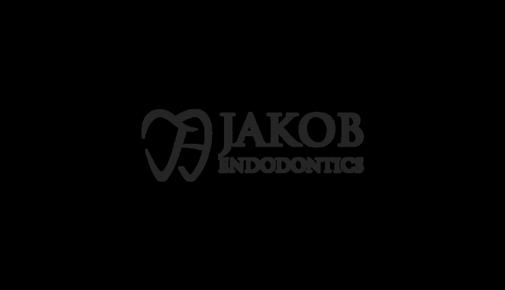
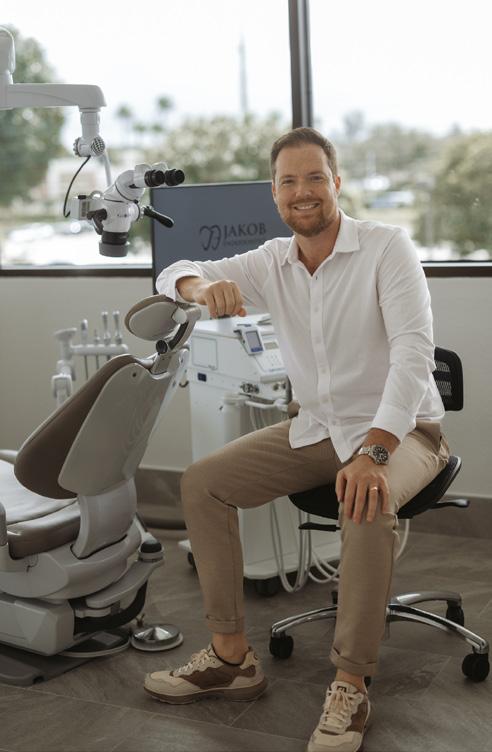
It was a quiet Wednesday afternoon at the Refuah B’Halacha Center. The morning rush had passed, and the Rav on call finally sat down with a cup of coffee that had long since gone cold.
Just as he took his first sip, the hotline rang.
He answered in his calm, steady voice, “Refuah B’Halacha Center. How can I help you?”
There was a short pause. Then a gentle, wavering voice came through the line — the kind that immediately brings to mind a sweet, elderly Yiddishe bubby with a warm smile and a wellworn Tehillim always nearby.
“Hello, Rabbi,” she said softly. “I hope I’m not disturbing you.”
“Not at all,” said the Rav kindly. “That’s what we’re here for. What can I do for you?”
“Well…” she hesitated. “It’s a little embarrassing, but I’m very worried. It’s about my teeth.”
Now, the Rav had been on the hotline long enough to know that anything could turn into a halachic question — dentures on Shabbos, fillings before Pesach, even kashrus questions on oral products. Still, something in her tone told him this was different.
“I see,” he said. “What about your teeth?”
“They’re falling out,” she said, her voice trembling slightly. “The dentist says it’s normal at my age — baruch Hashem, I’m turning ninety-two next month — but I started thinking maybe it’s a sign.”
“A sign?” asked the Rav, trying to understand.
“Yes,” she said, lowering her voice in a sad tone. “When I was
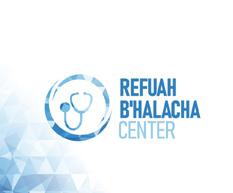

saying my Tehillim yesterday, I came across a posuk — ‘Shinnei resha’im shibbarta’ — ‘You have broken the teeth of the wicked.’”
(Tehillim 3:8)
There was another pause.
“I started to worry,” she continued. “Maybe Hashem is showing me that I’m a rasha! That’s why my teeth are breaking and falling out!”
The Rav blinked. After years of calls, this was a new one.
He smiled to himself and said gently, “I can ashore you — with full confidence — that this posuk is not talking about you.”
“You’re sure?” she asked, her voice caught somewhere between fear and hope.
“Absolutely sure,” he said warmly. “Let’s talk about what Dovid HaMelech really meant.”
He spoke softly, to calm the worried bubby. “When Dovid HaMelech said ‘Shinnei resha’im shibbarta,’ he wasn’t talking about literal teeth. It’s a moshol — a metaphor. Just like when we say ‘Hashem is my rock’ or ‘Hashem is my fortress’ — It means He pro-
tects us and gives us strength.”
“So, it’s not about actual teeth?” she asked, almost relieved.
“That’s right,” said the Rav. “When Dovid said ‘You broke the teeth of the wicked,’ he meant that Hashem takes away the power of the resha’im — their ability to harm others. ‘Breaking their teeth’ means Hashem stops them from ‘biting,’ so to speak.”
“Just look at the back ground to this kapitel, Avshalom led a nearly successful attempt to overthrow Dovid. Despite the apparent hopelessness of his situation, Dovid’s trust in Hashem fills him with security.”
The Rav heard a deep sigh on the line. “Oy, Rabbi, you can’t imagine how worried I was. I thought maybe Hashem was upset with me.”
The Rav chuckled softly. “Chas v’shalom! Hashem isn’t upset with you. What you’re experiencing is simply part of the normal aging process that Hashem built into the world. Teeth, hair, eyesight — they all weaken with time. It’s not a punishment; it’s a sign of a life



well lived.”
She paused, then said shyly, “You know, I really do try my best to do the right thing. I say Tehillim every day. I try to be careful with lashon hara, I light Shabbos candles early, and I always make sure to be modest. But when I read that posuk, I got so scared. I said, ‘Oy vey! Maybe I’m a rasha in Hashem’s eyes!’”
The Rav’s voice grew soft and warm. “You sound like a very frum, ehrliche woman who only wants to do Hashem’s will. I can tell you; Hashem is not calling you a rasha — quite the opposite. You’re a bas Yisroel who’s spent her life serving Him with sincerity. Hashem has tremendous nachas from people like you.”
There was a little laugh on the other end now, lighter and less shaky. “You’re very kind, Rabbi. But I’m just a simple woman. I didn’t learn in a seminary or anything like that when I was younger.”
“Sometimes,” said the Rav, “the greatest tzidkaniyos are the simple women — the ones who daven with real kavanah, who do chesed quietly, who live their lives with emunah peshutah. You don’t need a seminary degree for Hashem to love you.”
“Well,” she said, “I try. But I
really was scared. I even told my neighbor, ‘If the rabbi says it’s a bad siman, I’ll have to start fasting!’”
The Rav laughed. “No fasting needed.”
They both laughed now, the tension completely gone.
“Baruch Hashem,” she said. “You’ve really calmed me down.”
“I’m so glad,” said the Rav. “And you know, Tehillim isn’t meant to frighten us. Dovid HaMelech’s words remind us that Hashem protects the righteous and stops those who try to harm them. Even the psukim that sound harsh are really about Hashem’s mercy and justice.”
“That’s beautiful,” she said quietly. “I’ll think of it differently now.”
Then she said, in that sweet, trembling voice that could only come from a Yiddishe bubby, “Rabbi, can I give you a bracha?”
The Rav smiled. “I’d be honored.”
She cleared her throat and began. “Hashem should give you koach to keep helping Yidden, especially nervous old ladies like me. You should always have patience, simcha, and hatzlacha in your work. And may your teeth stay strong until 120!”
“Amen! That’s one bracha I can
really use!”
They said goodbye warmly. When the line went silent, the Rav sat for a moment, still smiling. Calls like that — the unexpected, heartfelt ones — were the reason he loved this work. Behind every halachic question, big or small, there was always a Yiddishe heart — sometimes worried, sometimes confused, but always filled with sincerity and a deep desire to do the right thing. Sometimes the greatest refuah b’halacha isn’t just answering a question. It’s giving a Yiddishe neshama a little menuchas hanefesh.
If you ever find yourself wondering about a medical halacha question — big or small, serious or just something that’s been on your mind — remember that you don’t have to figure it out alone. The Refuah B’Halacha Center is here to help, with experienced rabbanim available to guide you through even the most sensitive or confusing situations.
We specialize in: Mental health, Shabbos, Treatment issues Hospital stays, Fertility, Kashrus
We are here Sunday through Friday 8:00 am till 10:00 pm and erev Shabbos 10 minutes before candle lighting. Refuah B’Halacha Hotline: 732 755 0851 or email us at www.refuahbhalachacenter.org


By Rabbi Jonathan Gewirtz
Sometimes when you ask someone to give you the backstory for something, they’ll say something like, “Ahhhh… Where should I begin?” Well, author Lewis Carroll, in Alice’s Adventures in Wonderland, gives us some good advice. His character, the King of Hearts, is asked just that question about reading a document.
“Begin at the beginning,” the King said very gravely, “and go on till you come to the end: then stop.” This is a pretty logical answer; that is where we ought to begin, at the beginning! Why didn’t I think of that?
Well, when you’ve got a long story, you may want to ignore the very beginning if it’s no longer relevant. You’d skip ahead to where the important information began. For example, when you ask someone how they became a successful entrepreneur, you don’t need to hear about when they were born or where they went to kindergarten. You want to know what started them on this journey of creativity and business success.
A Gadol’s biography will touch on his early years to help tell the tale of his illustrious ancestry, or his humble beginnings, but the details of his favorite childhood candy would be superfluous. It’s not part of who he ultimately became, and therefore, it’s not of interest anymore.
What this means, then, is that there can be multiple beginnings
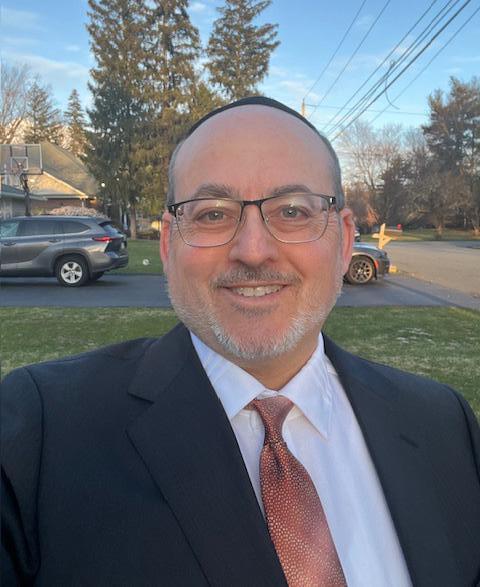
to something. For example, the beginning of a life, and then the beginning of a new direction in that life. Let’s look at Sefer Beraishis. “In the beginning,” certainly would seem to be the true beginning of the Torah. However, Rashi immediately questions that the Torah should instead have begun with the beginning of the Jewish Nation. So, beginning at the beginning doesn’t mean the beginning beginning, but a specific beginning!
Now that there are multiple beginnings, we can understand that there are also multiple ends, which aren’t really true endings at all. While Adam began life in the Garden of Eden, when he sinned that ended – which began his life as a human being with a different set of challenges. When he did Teshuva, he ended another period in his life, which was the start of a new one.
Kayin killed his brother. Game over. But Hevel’s neshama came back in the bodies of Shes, Noach, and Moshe (acronym being: neshama) and he had new beginnings. Kayin thought his life was over, but Hashem gave him an extension; a chance for a new beginning, where he could be righteous.
The world fell into disgrace, and Hashem said it was time to end it. He sent a flood, and also a new beginning! This time, the world was populated not by descendants of a murderer, Kayin, or of idolators, his grandchildren, but by descendants of the one Hashem found to be a unique tzaddik in his time.
There was no one who believed in Hashem or praised him as did Avraham. Why? Because through his reflection on the world and his realization that there must be a Creator, and that this Creator must expect something from His creations, Avraham put an end to the ignorance of Mankind and made a new beginning. Yitzchak began a world where a person could sacrifice himself for Hashem, and Yaakov began a new nation of holy children.
Over and over, we see that when there’s a cycle of evil, or even a good that could be improved, it is possible to put an end to it. And then, that’s where you begin. When you ask where to begin, the answer isn’t merely, “At the beginning.” The real answer is that

you should begin where you put an end to something that wasn’t working. You should start where you ended a vicious cycle of behavior that wasn’t conducive to your goal to live as a holy individual who is connected to Hashem. You should begin where you put an end to lackluster living with rote and no thought. When you feel negative, how do you turn that around? You have to end it, but it’s so hard. Well, I have an idea. How about you end the pain by putting a new, positive perspective into place? By creating a new beginning, you can cut off the life force feeding
the old ways, and it will end by itself.
So, get this, you can begin at the beginning, or begin at the end, or you can even end at the beginning! There are so many choices and chances to get things right that we should never let ourselves get down or depressed about them.
The Registrar in my Yeshiva had a sign on his wall. “The best way to break a bad habit is to drop it.” It was pithy, but easier said than done, right?
Well, this same fellow told me something else: “It’s very easy to resist the Yetzer Hara. When he

tells you to do something, you say, “NO.”” Then he continued softly, “The hard part is recognizing it’s the Yetzer Hara.” So, let’s take his advice to heart. When we get caught in a pattern we’re not happy with, let’s identify it, put a stop to it, and make way for a new beginning, something you can do any time - up until the very end.
2025 – All Rights Reserved
Did you enjoy this column? Feedback is welcome and appreciated. E-mail info@JewishSpeechWriter.com to share your thoughts. You never know when you may be the lamp that enlightens someone else.


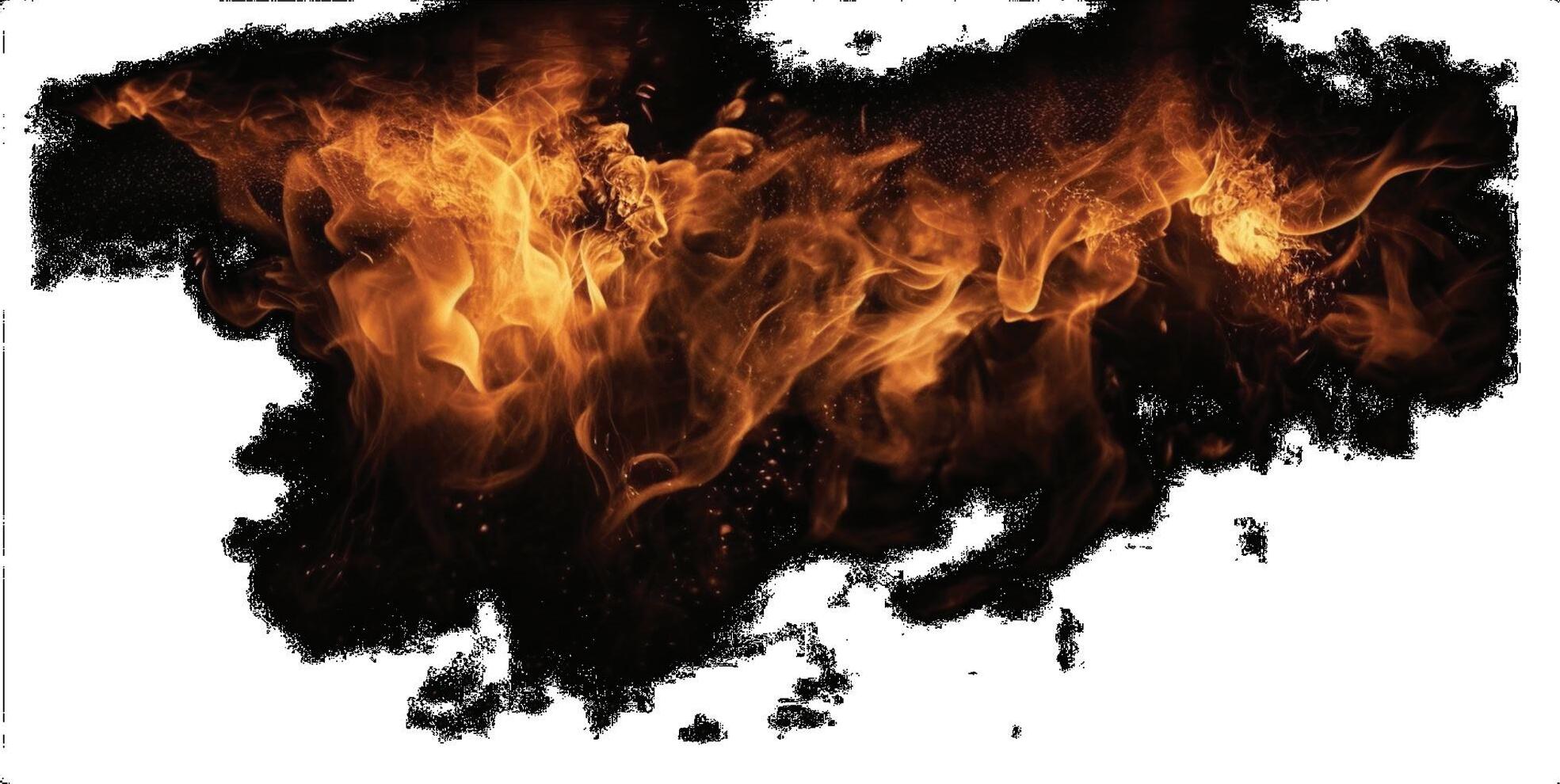

Sunday to Thursday: 12pm - 10pm Friday: 11am - 3:30pm OPENING HOURS Scan the code to order!

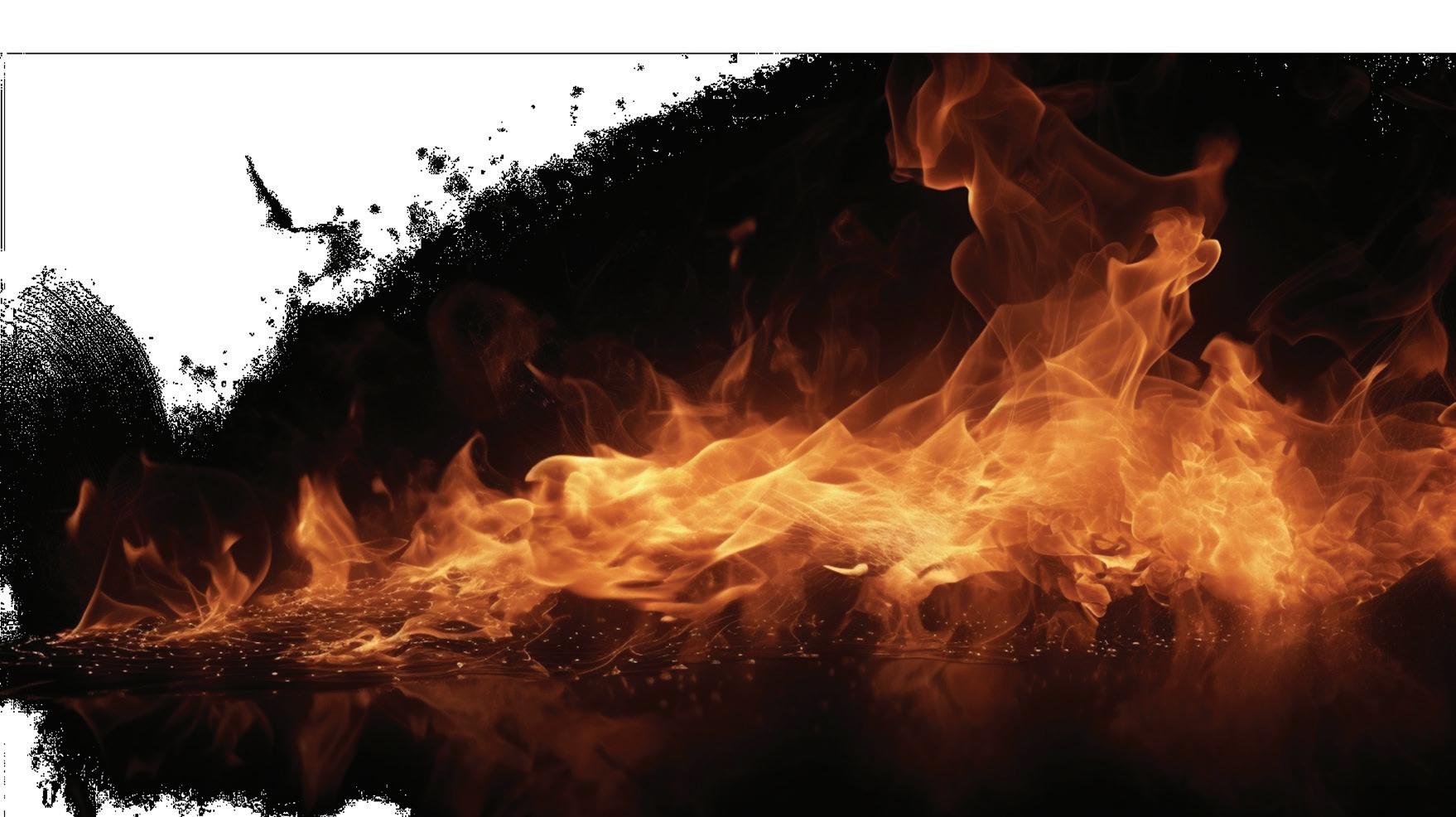

On behalf of the entire South Florida Community we would like to extend our deepest gratitude to



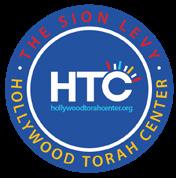
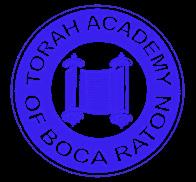

US Special Envoy to the Middle East and to the entire administration involved day and night in securing the release of the hostages





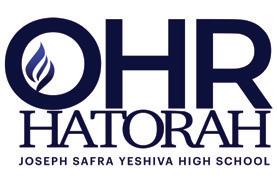

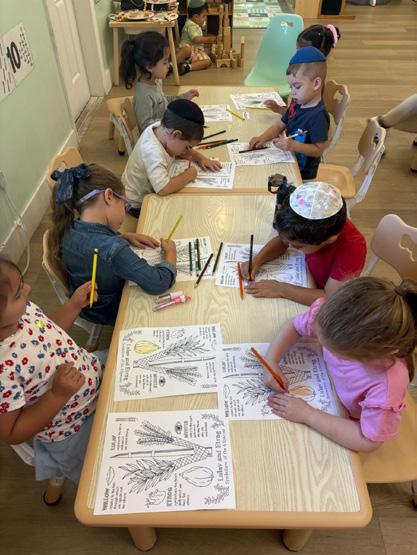
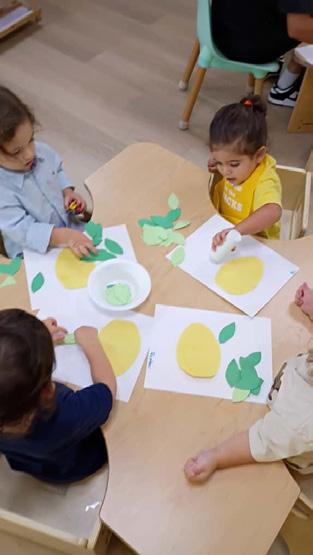

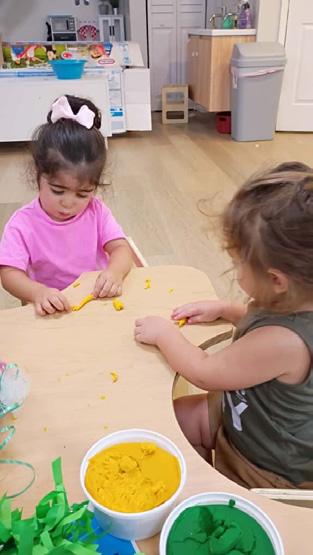


Condolences for the death of Rabbi Mosher Hauer, zt”l, executive vice president of the Orthodox Union who passed away suddenly at the age of 60 over the Shemni Azeret holiday, continue to pour in from across the country and the world. President Donald Trump, President Isaac Herzog of Israel, Prime Minister Benjamin Netanyahu, U.S. lawmakers from both sides of the aisle, religious leaders from many faiths, including Cardinal Timothy Dolan, as well as leaders of other Jewish denominations, have written and spoken about Rabbi Hauer’s impact and legacy. The expressions of sorrow and the outpouring of memories is not surprising; as Rabbi Hauer labored tirelessly for the Jewish people, often partnering with a diverse array of leaders and communities to work toward common goals.
This week the OU leadership team and staff members gathered in New York and Jerusalem, with many others joining remotely, as well as having other dedicated conversations during these difficult days, to remember their leader, rabbi, colleague, and mentor.
Rabbi Hauer led most of the OU’s outward-facing activities, serving as its voice to the world.
This included dedicating countless hours and effort to advocating for the protection of Jews amid rising antisemitism
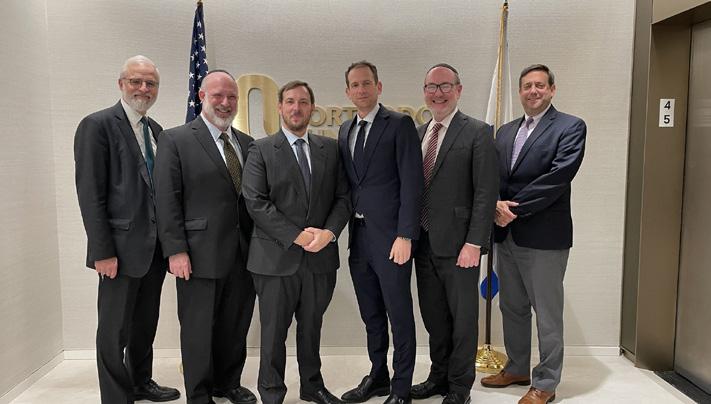
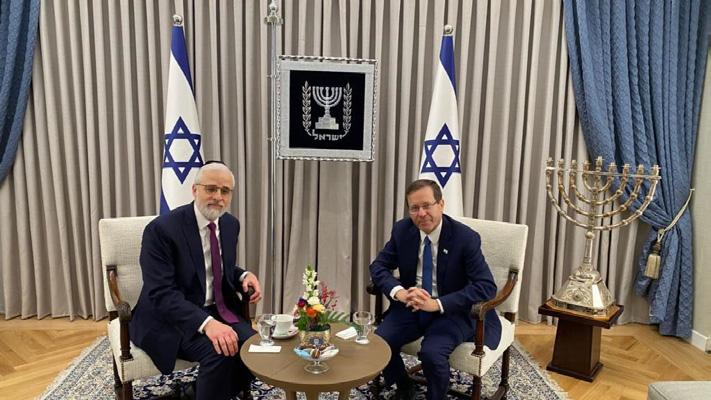
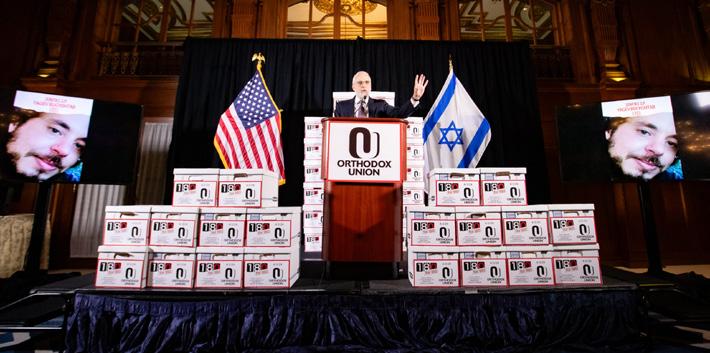


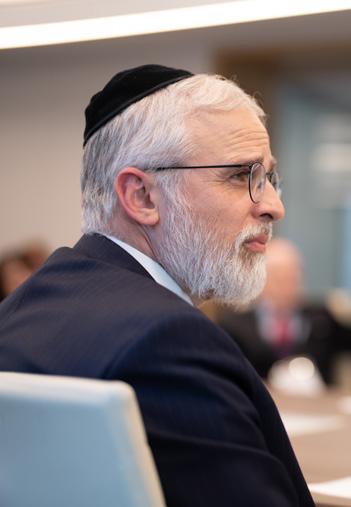
since the Hamas-led murderous attacks and hostage-taking on Oct. 7, 2023, and ensuing war in Gaza. As the OU family grapples with the loss, they are also looking back on the impact that Rabbi Hauer made.
“Rabbi Hauer was an exemplar of what it meant to be a Torah Jew. Torah framed his life, and he used Torah to frame our lives,” said Rabbi Dr. Josh Joseph, Executive Vice President and Chief Operating Officer of the OU, who spoke in both Jerusalem and New York. “I have lost a brother,” Joseph said, describing his close working relationship with Rabbi Hauer as they led the OU together for the past five years. He drew tears and smiles as he told a number of stories that highlighted Rabbi Hauer’s humility, faith, and passion.
OU President Mitchel Aeder described Rabbi Hauer as “a man of impeccable character, honesty and integrity. He had
By: Rebbetzin Dr. Adina Shmidman
I keep hearing Rabbi Hauer z”tl’s voice.
Not in sound, but in thought — the pauses between words, the care in his phrasing, the way he turned a question into an opening rather than a conclusion. Since the passing of Rabbi Moshe Hauer zt”l, that voice continues to echo — a steady reminder of what genuine leadership looks like.
During the five and a half years that I worked with him at the Orthodox Union, I came to understand that his leadership was not a style; it was a value system. The hundred-plus files in my computer that bear his name — meeting notes, reflections, drafts — capture not only what we discussed, but how he led: with clarity, humility, and care.
Lesson 1: Leadership begins with responsibility.
Our first team meeting took place at Philadelphia’s 30th Street Station as the uncertainty of Covid loomed. Fear and confusion hung in the air, yet his calm presence anchored the room. That day set the tone for the years that followed - years marked by challenge and resilience. Covid, war, tragedy - yet under his guidance, he taught us what it means to lead. He reminded us again and again that Torah does not pause for crisis — that our achrayus, our responsibility to one another, only deepens when the world feels unsteady.
Lesson 2: Vision means making space, not taking space.
Rabbi Hauer had a vision for the Orthodox Union and the Women’s Initiative — expansive and Torah-driven — but it was never imposed from above. He didn’t dictate; he cultivated. His meetings were conversations, not directives. When others spoke, he listened fully, often pausing before responding, as if to weigh not only what was said but what was meant.
Lesson 3: Progress is better than perfection.
I learned this most powerfully through the creation of the Torat Imecha Halacha initiative. Rabbi Hauer wanted women learning halacha — as simple as that. I raised countless complexities that seemed insurmountable. For two years we went back and forth. Each week would tuck the topic at the end of our weekly meeting agenda, hoping we would run out of time. He never gave up. “Don’t let perfection be the enemy of the good,” he would remind me. “No” was not an option. His persistence taught me that you can champion a value and advance ideas relentlessly without telling people what to do.
And when the program finally launched, I shared messages from
a calming demeanor, a soft and humble tone of voice, but he was unbending in his principles.From mentoring rabbis to working with other faith leaders, he developed warm relationships with everyone he worked with,” Aeder said. “This was part of who he was and it is why he could accomplish so much on behalf of the Jewish people and the OU. This organization has been around since 1898, but Rabbi Hauer, in partnership with Rabbi Dr. Josh Joseph, was an absolute game changer.”
Under his leadership, programs from Torah learning to community building in Israel to initiatives to combat loneliness, expanded. “Rabbi Hauer was so widely respected that he was able to take the OU into more communities. The banner of the OU is definitely higher today because of him,” Aeder added.
“His leadership was never about asserting control, but about creating space,” said Rebbetzin Dr. Adina Shmidman, founding director of the OU Women’s Initiative. “He led by listening, by integrating, by elevating others.”
He also worked to reaffirm support for Israel, while striving to bridge internal divides within the Jewish world.
“Rabbi Hauer didn’t just build bridges. He was a bridge,” said Rabbi Avi Berman, Executive Director of the OU in Israel. “He connected American Jews and Israeli Jews in many ways, both personal and communal. On the personal level, Rabbi Hauer constantly practiced the simple but
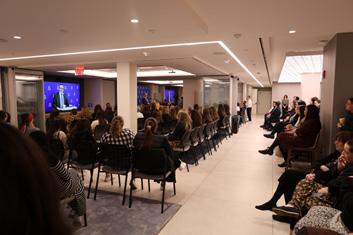
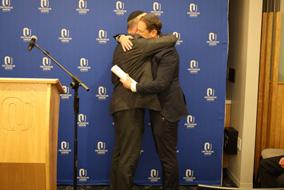
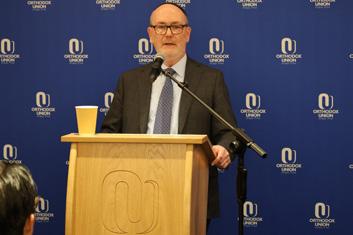
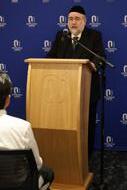
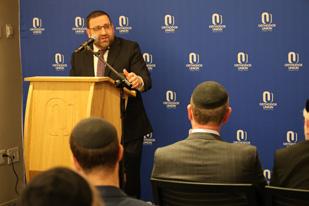
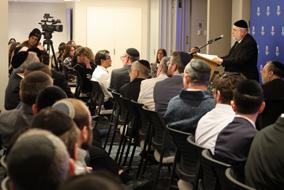
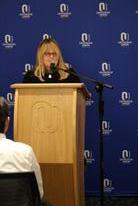
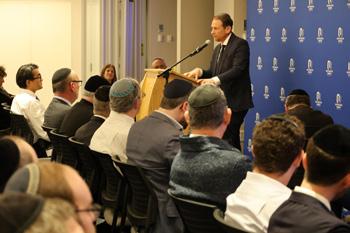
profound act of truly listening.”
Speakers also touched on the guiding themes of Rabbi Hauer’s work and tireless schedule.
Rabbi Moshe Elefant, Chief Operating Officer of OU Kosher, observed “In every interaction that Rabbi Hauer had and every decision that he made was motivated by what does G-d want?
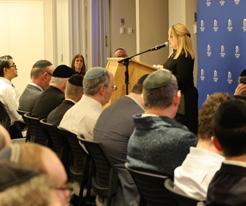
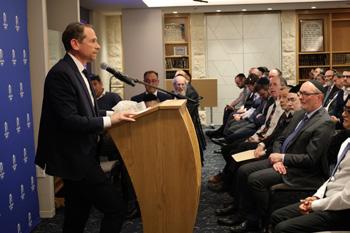
And he knew that G-d wants us to act and effect change with modesty.”
“Rabbi Hauer woke up in the morning and began each day by asking ‘where am I needed the most?”, said Rabbi Yakov Glasser, OU Managing Director of Communal Engagement. “Sometimes it was the White House or the
Knesset, the tables of Federation or the Conference of Presidents, and sometimes it was providing guidance and chizzuk (strength) and love to an individual rabbi, a struggling employee, or someone in pain that he encountered at Mincha.”
Joseph compared Rabbi Hauer’s life - cut short when there was so much more he planned to do - to that of Moshe Rabbenu, who, although he lived until 120, was never able to enter the Land of Israel, to complete his mission and goal. But, drawing on the now haunting words that Rabbi Hauer himself had used in a recent dvar Torah referring to Moshe Rabbenu’s death, Joseph attempted to find comfort in the idea that life is not about finishing every mission and project, but rather just continuing to work toward goals, and train and inspire others to continue our work when we are gone which is exactly what Rabbi Hauer did and what the OU will continue to do.
About the Orthodox Union
Founded in 1898, the Orthodox Union (OU), or Union of Orthodox Jewish Congregations of America, serves as the voice of American Orthodox Jewry, with over 400 congregations in its synagogue network. As the umbrella organization for American Orthodox Jewry, the OU is at the forefront of advocacy work on both state and federal levels, outreach to Jewish teens and young professionals through NCSY, Israel Free Spirit Birthright, Yachad and OU Press, among many other divisions and programs.
participants — women thanking us for helping them remember a detail in Shemoneh Esrei or reconnecting with halacha in daily life. Rabbi Hauer listened, smiled, and said nothing more. There was no I told you so, no triumph. Only quiet satisfaction that people were growing in Torah.
So many have shared how his sensitivity transformed moments of pain into comfort. He gave advice sparingly, but empathy freely. When he spoke publicly — at conferences, Tehillim gatherings, and national programs — his words were never about himself. They were about us — Klal Yisrael — how we could elevate, unite, and heal. Rabbi Hauer’s willingness to help was transformative, his sensitivity and care ever-present. In private interactions, as in every public setting, he led with compassion first.
Lesson 5: Legacy is measured in ongoing impact.
We often speak of din v’cheshbon — judgment and accounting. At first glance, the order seems reversed. Shouldn’t there first be a reckoning of one’s deeds before any judgment is rendered? And does Hashem need an accounting at all? He already knows every detail, every act and omission.
Perhaps the phrasing hints to something deeper — that even after a person’s lifetime, their cheshbon continues to unfold. Every act of kindness they inspired, every word of Torah that spreads in their merit, every soul they touched — all continue to add to their account.
And so it is with Rabbi Hauer. Every project he encouraged, every person he guided, every idea he inspired carries his imprint. His cheshbon continues, expanding through every corner of the community he strengthened.
Rabbi Hauer zt”l taught me that leadership begins in humility and ends in care. That faith and purpose can coexist with grief. That even when the way forward is painful, it is still — and always — possible.
Yehi zichro baruch — may his memory continue to teach us all.
Rebbetzin Dr. Adina Shmidman is founding director of the OU Women’s Initiative.
About the OU Women’s Initiative
The OU Women’s Initiative elevates and connects Orthodox Jewish women through Torah study, leadership development, and community engagement.
About the Orthodox Union
Founded in 1898, the Orthodox Union (OU), or Union of Orthodox Jewish Congregations of America, serves as the voice of American Orthodox Jewry, with over 400 congregations in its synagogue network. As the umbrella organization for American Orthodox Jewry, the OU is at the forefront of advocacy work on both state and federal levels, outreach to Jewish teens and young professionals through NCSY, Israel Free Spirit Birthright, Yachad and OU Press, among many other divisions and programs.

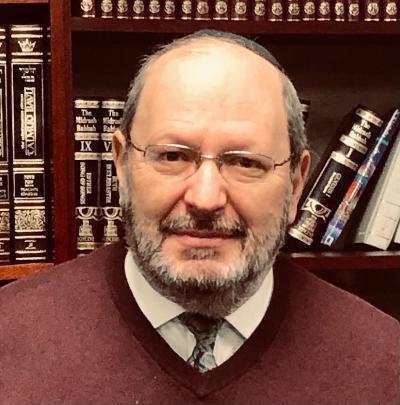
Retrospect:
This past October 7th, marked the second anniversary of the worst tragedy to befallen our Jewish people since the horrors and atrocities of Holocaust.
When reflecting upon this horrific period of time, it is so difficult to fathom the shock, trauma and despair that acheinu experienced while the hostages languished in the deep dark, damp and decrepit tunnels of Gaza. This does not include the over 900 IDF soldiers who lost their precious lives battling Hamas.
During this most trying period of time, thousands of IDF soldiers were admitted to rehabilitation centers and many more are currently being treated for emotional shock and psychological trauma resulting from the war. In addition, the relentless and indiscriminate missile attacks on Israeli population centers and the profound loss of loved ones and friends continued to take its toll through periods of mourning,
By Dr. Chaim Y. Botwinick
darkness, fear and depression.
These incomprehensible realities, included the increased number of displaced Israeli families, orphaned children and widows who are desperately coping with personal and familial losses of their loved ones. They were further exacerbated by a faltering Israeli economy and a growing number of small Israeli businesses that collapsed due to the impact of the war…..all of which negatively affecting Israel’s economic viability,
In retrospect, we will remembered these past two years for generations. These were indeed the dark days of history in search for glimmers of bright sunlight.
As we reflected on this dark chapter in history, we asked ourselves….when will this horrible nightmare ever end. And, the ultimate question – how will this madness end?
As we know, concerted efforts are currently underway to implement a 20-point disengagement plan with Hamas. We thank HaShem for the recent release of all the living hostages; and we hope and pray to HaShem that those deceased while in captivity will also be released from the clutches of evil.
As we hope and pray for the total release of all hostage remains, we wait anxiously for their total unconditional return to Israeli soil.
Although we try desperately to remain steadfast, hopeful and positive, we are all cautiously optimistic that the initial phases of the brokered agreement between Israel and Hamas will actually come to fruition.
History dictates that every civilized people have their ultimate threshold for false hopes, pain, anguish and trauma. What we all are now experiencing as a nation is nothing less.
As we collectively reflect upon these past two painful years, we are also witnessing and experiencing a level of strength, fortitude and resilience unsurpassed in recent history. It is so reminiscent of the manner in which Jews during Pre Nazi Europe fought evil Jew-bating, Jew hatred and violent acts of anti-Semitism in the deep dark streets, alleyways and courtyards of Germany, France and Italy.
There are those who sincerely believe that our resolve to confront crises is the result of a survival instinct which is ingrained and embedded in our culture and DNA. And there are others who firmly believe that following millennia of difficult, harsh challenges and battles for our existential survival that we have developed a very strong, steadfast and protective innate response to physical threats and existential crises
Friends, irrespective of these realities, I firmly believe with all my heart and soul that the single most important factor which pro-

tects us as a people and as a nation from danger and even extinction, is our deep and profound emunah and bitachon in HaShem and our sense of achdut, irrespective of our major differences which tend more often than not to separate us from one another, as a people and as a nation.
This reality is documented throughout our history and has its origins from the time we left Mitzrayim in order to sojourn to Eretz Yisrael.
As a nation and as a people, we are shaped by our very complex history, culture, diversity and strong sense of Jewish destiny and identity. These facts combined, have contributed to a very unique, strong and vibrant society that is exemplifie in our people.
Since yetziat miztrayim, our people have demonstrated remarkable strength, fortitude and resilience. This resilience as indicated, is deeply anchored in our spiritual psyche, perseverance, motivation and our nation’s raison detre.
From the time of the destruction of the Beit HaMikdash to the horrors of the Spanish Inquisition; from brutal pogroms of Eastern Europe to the extermination and death camps of Auschwitz and Majdanik, we may have emerged weak, physically beaten and left forgotten by the world. Nevertheless, we survived and emerged from this devastation with an inner strength, resolve and resilience.
This inner strength, resilience and relentless determination to survive, is fueled by our deep and profound Jewish identity, and unswerving faith in HaShem.

One has also only to look at our wars dating back to Yehoshua against the vicious Jew hating tribe and army of Amalek and to the numerous wars fought since the establishment of the State of Israel. We were victorious, irrespective of our small numbers. These were indeed wars fought by David against Goliath. We were victorious in spite of our small numbers and in spite of formidable enemies that were committed to our people’s destruction and annihilation.
During these past two years since the storm of October 7th, we were fortunate to experience an amazing amount of achdut, chesed and ahavat yisrael In fact, since October 7th, we experienced internal acts of loving kindness because it brought out the good in acheinu bnai yisrael – another critically important attribute and characteristic of our people.
While writing this post, I am reminded of a holocaust survivor who I befriended several years in
my shul. In fact, he sits right next to me during tefilla.
During the height of the recent missile attacks on our Israeli homeland, I recall him leaning over to me one morning in shul and whispering the words… “Chaim, we were able beat them before and with God’s help we will beat them again…..we must always remain positive, we have no choice”.
His words continue to ring in my ears.
Adding to the significance of his words was the fact that he tragically lost his entire family in Auschwitz.
Following his liberation from the death camp, he was transported to a displacement camp. From there, he came to Israel and then moved to and settled in the United States.
He remarried and rebuilt his beautiful life, always with a positive attitude and with a bright radiant smile. In fact, he recently celebrated his grandson’s Bar Mitzvah in Israel. The smile on his face upon returning home to the States from the Bar Mitzvah in Israel was beyond radiant. He was truly thankful to Hashem (as he described it to me) that he was blessed to experience and witness this tremendous simcha, following years of sadness, hopelessness and despair.
In a very strange sense, when he smiled at me, I actually saw an expression of gratitude to Hashem, and a bright glimmer his eyes that he survived the death camps of Auschwitz so that he can experience the birth and eventually the beautiful Bar Mitzvah of





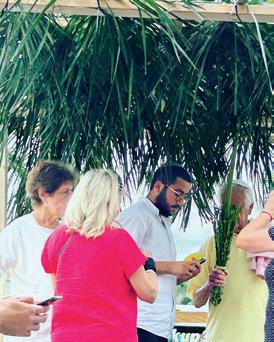

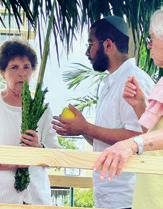
a grandson. It was almost as if he was saying to the world that he survived the camps for this very purpose and that his grandson’s Bar Mitzvah was living testimony to the fact that the enemies of Israel were defeated.
Friends, this brief story, one of millions, should provide all of us with a level of strength, fortitude and chizuk. And it should also remind us that all outcomes are B’yad HaShem through the hand (the will) of HaShem.
As we experienced the second anniversary of the October 7th horror, we are mindful of the fact that irrespective of how depressing and hopeless the past two years have been, positive think-
ing, emuna and bitachon are our people’s single strongest antidote and “road map” to the future.
A growing number of historians, sociologists and scholars, posit with conviction that although our people have faced numerous crises and existential challenges throughout history, including wars and persecution, we have fostered a true sense of resilience and adaptability that is characteristic of the Israeli people and their positive spirit.
This spirit is deeply rooted in our history and in proceeding generations who were motivated and driven to defy death and to celebrate life.
Here too, today we are faced

with post October 7th trauma, increased Jew hatred and anti-Semitism and an upside down world of vile hatred and consternation.
Our challenge friends is to try as hard as we can, to rise above the hatred and ugliness of the world and to celebrate life – the one gift that HaShem has bestowed upon us in perpetuity.
One way to accomplish this critically important objective is to ensure that achienu bnai yisrael, irrespective of circumstance, stand united together in true achdut.
Over these past two years, every Shabbat shul and minyan

throughout the world recited the mishaberach for the safe return and welfare of those being held hostage by Hamas.
Although it felt somewhat strange in that the mishaberach was missing from our tefillot, it was in fact an exhilarating reality. It was a feeling that our tefillot were finally answered and our hopes came to fruition. It is a feeling we will never ever forget.
Over this past Chag Succot, we were indeed blessed to no longer need to recite this bracha for the hostages. To be sure, it represented a new welcomed reality.
We now turn our attention to the return of the deceased hostages who are yet to be returned with kavod to their respective resting places in Eretz Yisrael.
We hope and pray for their complete return and for their proper burial.
Let us also hope and pray to HaShem that we will no longer need to send our sons and daughters into Gaza in order to defend our country. But, as we know, this hope and dream can only be realized if Hamas relinquishes its power, lays down its arms and commits itself to a long-term peaceful existence with Israel
Will it happen? Is it truly possible?
Only time will tell.
Following two years of deep pain and anguish, we hope and pray to HaShem that these reports are truly real and authentic.
It is in this spirit that we pray to HaShem that our children, grandchildren and great grandchildren will experience a safer and more secure and brighter future as we dream about their future and the Geula.
Dr. Chaim Botwinick is a senior executive coach and an organizational consultant .He served as president and CEO of the central agency for Jewish education in Baltimore and in Miami; in addition to head of school and principal for several Jewish day schools and yeshivot. As an Influencer, he has published and lectured extensively on topics relating to education, resource development, strategic planning and leadership development. He is cofounder of LEVE Consulting Associates and producer/host for Chinuch Horizons podcast. Dr. Botwinick is Author of “Think Excellence: Harnessing Your Power to Succeed beyond Greatness”, Brown Books, 2011

The perfect summer recharge is close to home. Spend more time in the pool, at the beach, and sleeping in. Just pack your bag and unwind. Whether you join us for shabbos or during the week, experience a quiet, restful staycation.
Escape from the everyday, without the jetlag.
By Moshe Phillips
The “Zinn Education Project” depicts U.S. and Israeli history primarily through the lens of colonialism and racism to shape classroom narratives.
Among the most shocking developments in America in the two years since the Oct. 7 terrorist attacks is the surge of anti-Israel sentiment seen in public school classrooms, teachers’ unions and local school board meetings.
Just as news of a ceasefire and hostage release was breaking last week, the New York Post reported that the NEA teachers’ union “sent its roughly 3 million members a sickening email containing a map that erased Israel completely and labeled it as Palestine.”
It was the latest in a long list of outrageous actions against Israel from the public education community. Since the Hamas-led invasion of southern Israel on Oct. 7, 2023, a line has been drawn between those who unequivocally condemn terrorism and those who equivocate. Tragically, the National Education Association (NEA) and the American Federation of Teachers (AFT)—the two largest teachers’ unions in the United States—have positioned themselves on the wrong side of that line. Through public statements, internal resolutions and targeted votes, these unions have betrayed the moral clarity demanded by such atrocities.
The NEA’s decision at its 2025 Representative Assembly to adopt “New Business Item 39,” which commits the NEA to “not use, en-
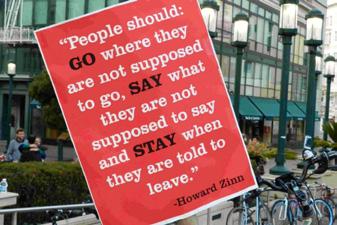
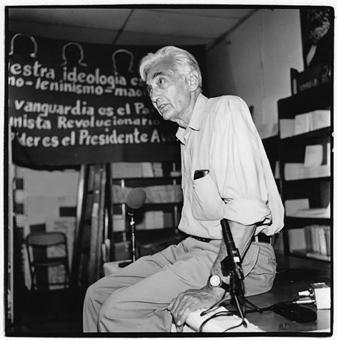
dorse or publicize materials from the Anti-Defamation League” or participate in its programs, cuts off essential tools in combating antisemitism. To reject collaboration largely based on ideological grievance, particularly at a time when antisemitism has been rising since Oct. 7, is indefensible.
Resolution proposals and statements from the NEA and AFT downplay Hamas’s campaign of mass murder, rape and kidnapping, or portray Israeli conduct as morally equivalent to the terrorists they are fighting. The AFT has described an “occupation” when Is-
rael unilaterally left Gaza in 2005 and often frames Israeli actions as unprovoked rather than fully acknowledging the initial terrorist invasion and the ongoing hostage crisis
In July, the AFT launched the “AFT Disaster Relief Fund for Gaza Humanitarian Aid” without mentioning a single word about the suffering of Israeli families.
Also in July, the NEA made headlines for a new handbook that failed to mention Jews among the 12 million victims of the Holocaust, never mind that 6 million were systematically murdered throughout World War II by the Nazis. Simultaneously, the handbook described the State of Israel’s modern-day establishment in 1948 as a nakba (“disaster” or “catastrophe”) and falsely claimed a “forced, violent displacement and dispossession of at least 750,000 Palestinians.”
Through these votes and statements, the NEA and AFT are not merely failing to provide real moral leadership; they are complicit in advancing narratives that dehumanize and delegitimize. In war, there are always tragedies and complexities. But there are also clear violations of human rights— and choosing ambiguity or selective outrage in the face of those is a choice. It is a morally bankrupt one
What is the source of all this anti-Israel extremism? One major influence was Howard Zinn, author of A People’s History of the United States. A professor and vocal critic of Israel who died in 2010,

he portrayed the Jewish state as a colonial aggressor and routinely framed the Israeli-Palestinian conflict in starkly one-sided, anti-Israel terms.
In his 2002 essay “The Others,” he likened Israeli policies toward Palestinians to apartheid and American racism, accusing the Jewish state of “ethnic cleansing” while largely ignoring terrorism and Israel’s security concerns. Zinn’s work is widely assigned in teacher-preparation programs, shaping a worldview in which Western democracies—Israel included—are seen as oppressors by default.
His legacy continues to normalize anti-Israel bias among far too many American educators, contributing to the erosion of moral clarity around antisemitism, terrorism and Israel’s right to self-defense.
Rethinking Schools—a far-left education journal and publishing enterprise—distributes radical classroom materials nationwide through the “Zinn Education Project” and is just one of many anti-Israel efforts aimed at teachers that need to be exposed. This project uses Zinn’s arguments, depicting U.S. and Israeli history primarily through the lens of colonialism and racism, to shape classroom narratives. Rethinking Schools regularly publishes lesson plans and articles that mirror Zinn’s ideology-based approach, reinforcing anti-Israel perspectives in K-12 education. In doing so, it amplifies Zinn’s influence over generations of leftist teachers.
The extremists at Rethinking Schools are hyper-focused on Israel. They have devoted two of

the last seven issues to attacking Zionism and earlier this year published a book titled Teaching Palestine. This is not a new phenomenon; anti-Israel articles in the magazine date back to at least 2016.
When the history is written of the post-Oct. 7 explosion of Israel-bashing and antisemitism on American college campuses, historians will not need to look far to understand how students were radicalized against Israel before ever stepping into a college lecture hall. What teachers teach must be monitored. There is no alternative. We are now witnessing the consequences of failing to do so.
Moshe Phillips is national chairman of Americans For A Safe Israel (www.AFSI.org), a leading pro-Israel advocacy and education organization.
JUDAH MANDEL ESQ. ATTORNEY AT LAW
C: 305.310.5991
P: 305.900.5996
F: 786.734.8915

Q: Why don’t seagulls fly over the bay?
A: Because then they’d be bagels!
Q: What do you call a sleeping bull?
A: A bulldozer!
Q: Why did the cow go to outer space?
A: To see the moooon!
Q: What do you get when you cross a fish and an elephant?
A: Swimming trunks!
Q: What do you call a bear with no teeth?
A:A gummy bear!
Q: What’s a cat’s favorite color?
A: Purr-ple!
Q: Why did the lion eat the tightrope walker?
A: He wanted a balanced meal!
Q: What do you call an alligator in a vest?
A: An investigator!
Q: Why can’t a leopard play hide and seek?
A: Because he’s always spotted!
1. Elephants can’t jump — they’re the only mammal that can’t!
2. Sloths move so slowly that green algae grows on their fur to help them blend in with trees.
3. Penguins propose to their mates by giving them a special pebble.
4. Dolphins have names — they use unique whistles to call each other.
5. Kangaroos can’t walk backward — their strong tails and legs make it impossible.
6. Owls can rotate their heads up to 270 degrees, almost all the way around!
7. Bees communicate by dancing — they use “waggle dances” to tell others where flowers are.
9. Octopuses have three hearts and blue blood!
10. Sea turtles can hold their breath for up to 5 hours underwater.



This guac is a balance of smooth, creamy, and chunky. Serve it with tortilla chips, on tacos, or alongside our Cheesy Party Nachos.
And while you might be tempted to hang on to the pit, just discard it. Keeping the pit in the guacamole does not keep it from turning brown. If you’re making this ahead, mix up and place plastic wrap on the surface of the guac, not just the bowl.
Ingredients
• 3 ripe avocados
• ¼ cup fresh lime juice
• 1 teaspoon extra virgin olive oil
• 1 small red onion minced
• 1 garlic clove grated
• 10 grape tomatoes cut in half
• ¼ cup cilantro leaves optional
• 1 teaspoon kosher salt
• ½ teaspoon freshly ground black pepper
By Jamie Geller
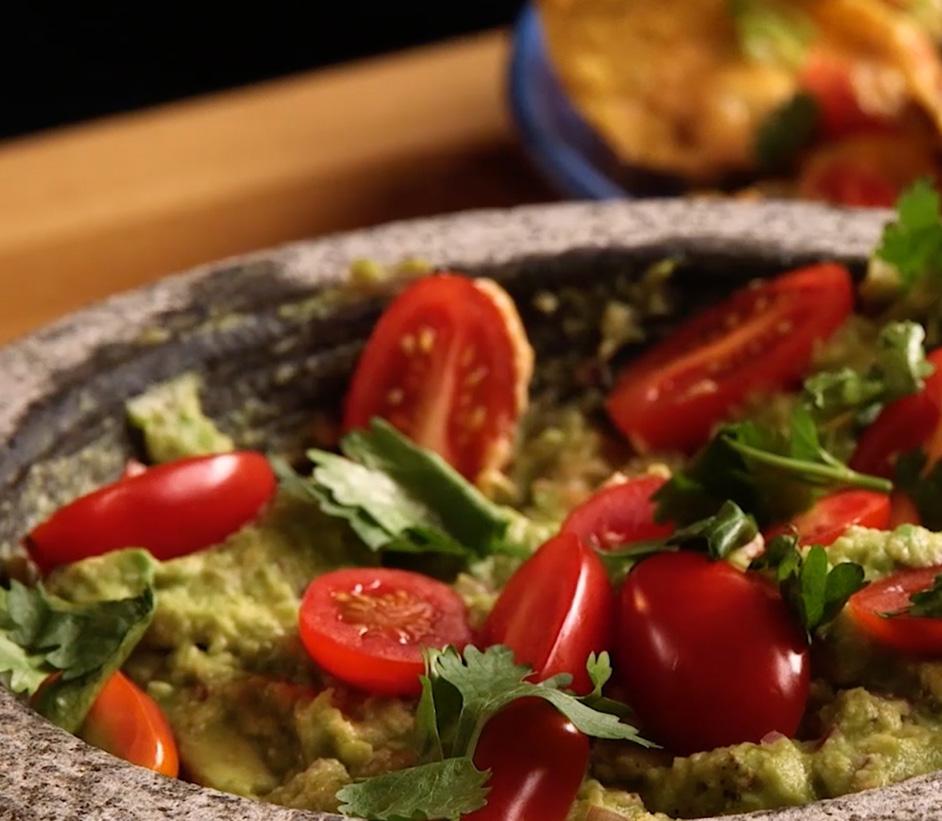
1. Slice avocados lengthwise, twist and split apart to reveal pit. Lay avocado down and sharply strike pit with your knife. Pull pit out with your knife and discard (the pit does not keep avocados from turning dark).
2. Scoop avocado flesh with a spoon and put in a medium mixing bowl. Add lime juice, evoo, onion, and garlic. Mash with a potato masher or fork until creamy and smooth, with just a few lumps.
3. Adjust seasoning with salt and pepper. Add in tomatoes and cilantro. Serve with tortilla chips, on tacos, or alongside our Cheesy Party Nachos.
4. Store guacamole, covered on the surface with plastic wrap or parchment paper, in the refrigerator up to 1 day.
Jamie Geller is the Chief Media and Marketing Officer at Aish. She is also a bestselling cookbook author, celebrity chef, television producer, and businesswoman. She’s the author of eight cookbooks and the founder of Kosher Media Network.








Aviva’s Golden Years Coaching: Empowering your next chapter. Let’s Grow Gracefully. Certified Life Coach, BA in Psychology. Free 15 minute consultation 561-929-5831 | www.goldenyearcoaching.com
Low bulk, dynamic and comfortable. Excellent for balance, sports & pain relief. Adults & Children
Rochelle Silberman-Jawitz, Concierge Orthotist (917) 494-1111 SEAMSTRESS
Alterations, Dressmaking, including wedding clothes. Phone: (646) 413-4542
& CLASSIFIED
List your local business, services available, real estate opportunities, Help Wanted, & more!
Basic listing: $10/weekName, number and email address
Enhanced listing: $25/weekUp to 25 words (additional words $1/each)
Deadline: Tuesday at 4pm for next week's issue
Contact: andrea@tsfcommunityvoice.com
V&N Cleaning Service 561-860-0936
$10 off 1st cleaning, $10 off 2nd cleaning. We clean corners, not cut them!
Coolstar Air Service llc A/C Install & Repair (954) 200-1369 | coolstarair@yahoo.com
IT Tech Support & Low Voltage Services 561-331-1680 | barry@navonpro.com
Jewish telehealth therapist for anxiety & bitachon Experienced serving the observant Jewish community. Insurance accepted. TV wellness expert with new Florida practice. (303) 720-1424 l heather@drheatherhans.com
Quick Diagnosis Telemedicine 561-299-0496 | myquickdiagnosis.com
Most affordable housing in the entire state Esformes Hebrew Academy of Ormond Beach
• Elementary teacher • Office manager
• School Event Coordinator • Drama & Music, Coach
Part-time and full-time positions
Quiet suburb School and shul community
EsformesHebrewAcademy.org
Email resume to chanidaytona@gmail.com
Realtor Mordechai Berkowitz 917-515-5967 | www.MaxSellsMiami.com
To place a Business Directory/Classified Listing contact: andrea@tsfcommunityvoice.com



Don’t miss out!

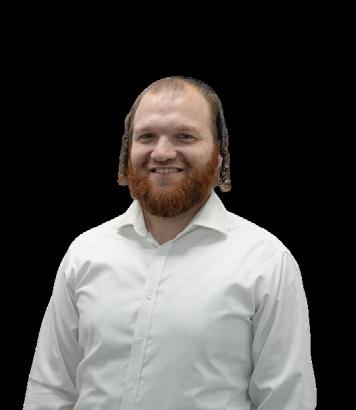

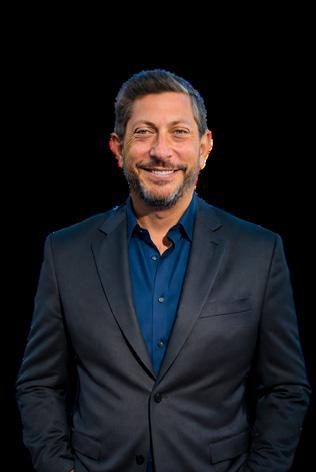


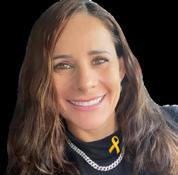


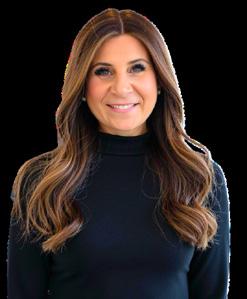
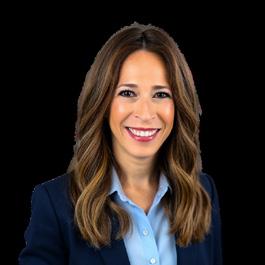
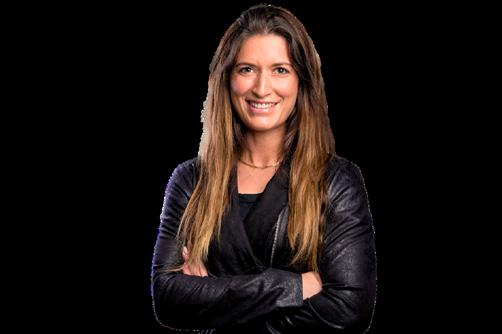






By Shmuel Shayowitz
In this week’s Torah portion, Parshat Noach, we meet a man who spent 120 years building something everyone else ignored. There was no rain, no rumblings, no visible threat - just faith, discipline, and an unwavering belief that preparation matters more than perception.
The Torah says, “Noach did everything just as God commanded him. So he did.” That single verse captures a principle that defines long-term success in any area of life: Do the work before with precision and purpose. He built steadily, quietly, and deliberately. When the world was distracted, he was focused. When others mocked, he stayed the course. By the time the rain started, it was too late for everyone else to start building.
That’s not just a Torah lesson — it’s a life lesson.
We’re living in a time that feels eerily similar to the calm before a major shift. The Government shutdown is certainly everyday news - but most people don’t feel the impact or understand the ramifications, so its nothing more than noise to the average American. In other news: We are weeks away from a socialist, communist, anti-semit potentially becoming the Mayor of New York, the “Capital of the World,” a state with the largest Jewish population in the U.S.
The economy looks steady on the surface, but anyone paying
attention can sense the undercurrents. Debt is climbing, savings are thinning, and markets are moving on emotion more than fundamentals. This is the time when smart investors make their quiet adjustments — not when the headlines start screaming.
You don’t need to be a prophet to see that volatility is part of the cycle. Interest rates, housing demand, job markets — they all move in waves. The question is whether you’re positioned to float or flounder when the next one hits. If your financial plan depends on everything staying perfect, that’s not strategy — that’s wishful thinking.
Over the past few weeks, I’ve had several conversations with people who told me they’re looking to diversify out of the stock market. They are becoming more and more uneasy with the uncertainty and long overdue market correction. Some of them invested in our hard money and bridge loan funds. These are people who understand timing. They’re not reacting to panic - they’re repositioning with foresight. It’s not a shamless plug for my private lending initiatives, it’s a call to start thinking about buckling the status quoe.
The disciplined approach is to use calm periods wisely. Reassess your balance sheet. Diversify with intention. Pay down expensive debt. Rebuild cash reserves.
Line up your credit and capital while you still can. Most people start scrambling after they feel the drops of rain. The builders - the real planners - they act before the storm.
And beyond finances, this mindset applies to family and faith as well. Build systems of strength before they’re tested. Noach didn’t wait for clouds to form or panic to spread before acting. Don’t wait for chaos to realize what truly matters. Noach survived because he led with faith, patience, preparation, and conviction when the world was still comfortable.
So as the markets stay quiet and the headlines stay calm, don’t mistake that for security. This is the moment to reinforce your foundations - financially, spiritually, and emotionally. Because when the storm comes, it’s too late to start building.
Shmuel Shayowitz (NMLS#19871) is a highly regarded Real Estate & Finance Executive, Writer, Speaker, Coach, and Advisor. He is President and Chief Lending Officer of Approved Funding, a privately held national mortgage banker and direct lender that has facilitated over $3 billion in mortgage funding. Shmuel has over twenty years of industry experience, holding numerous licenses and accreditations, including certified mortgage underwriter, licensed real estate agent, residential review appraiser, and accredited investor, to name a few. Shmuel has successfully navigated through many changing markets and business landscapes, making his market insights and experience well-coveted within the real estate industry. He can be reached via email at Shmuel@approvedfunding.com.

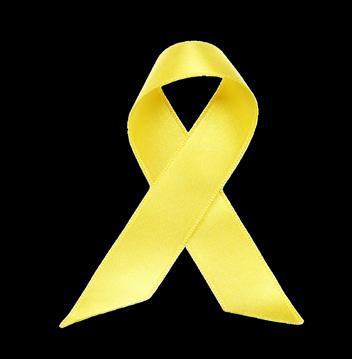


HOME EQUITY, MINUS THE HEADACHES. BECAUSE LIFE’S COMPLICATED ENOUGH.
UNLOCK A HASSLE-FREE HOME EQUITY LINE OF CREDIT (HELOC) WITH OPTIMUM BANK.
With South Florida home values rising, now’s the time to put your equity to work. Whether it’s camp tuition, a new A/C, or fixing that ceiling leak before hurricane season — an Optimum HELOC could be your solution.
At Optimum, we don’t do runarounds or phone trees.
For over 20 years, we’ve kept banking local, human, and refreshingly straightforward, with branches in:
DEERFIELD | FT. LAUDERDALE | NORTH MIAMI BEACH NO CALL CENTERS. NO HIDDEN FEES. JUST REAL NEIGHBORS WHO: KNOW THE COMMUNITY OFFER CLEAR TERMS PROVIDE GREAT LOAN OPTIONS
From supporting local schools and nonprofits to sponsoring concerts and Chulent CookOffs, Optimum is proud to help turn South Florida’s growth from a headline into a hometown. Our HELOC helps homeowners access their home’s value — while backing the people and institutions that make our community thrive.
Member FDIC. Equal Housing Lender. Terms and conditions apply. We don’t pick roof tiles, but we’d love to hear your choice.

LET’S TURN YOUR EQUITY INTO SOMETHING GREAT WITH A HELOC FROM OPTIMUM.
DOVID SIEGEL, SVP Head Of Business Development
Call us today 754-227-5212 Visit [www.optimumbank.com] email dsiegel@optimumbank.com or stop by your neighborhood branch